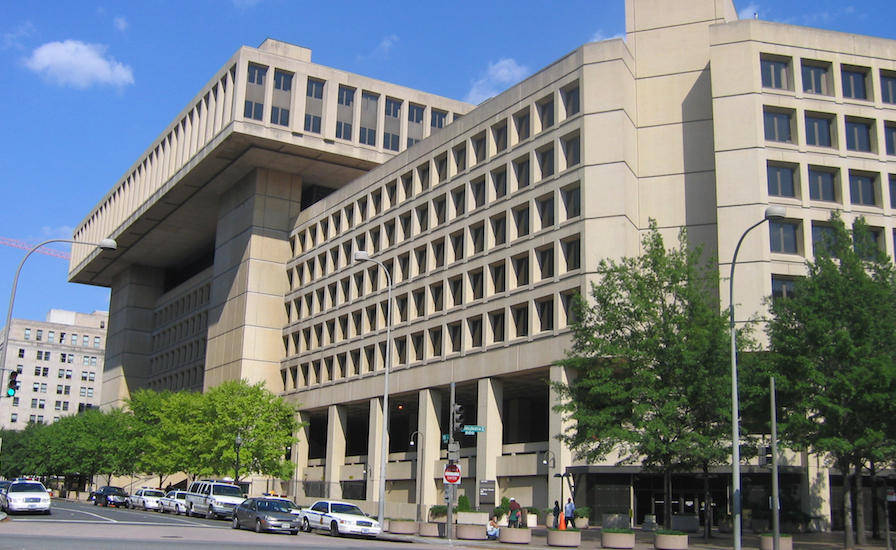Federal Buildings
Federal Agencies Pledge a Plan B for New FBI Headquarters
GSA, FBI to send new proposal to Congress in 120 days

Prodded by a key U.S. senator, federal agencies have agreed to provide Congress, within 120 days, with a Plan B for providing a new headquarters for the Federal Bureau of Investigation.
Senate Environment and Public and Works Committee Chairman John Barrasso (R-Wyo.) elicited the pledge from General Services Administration and FBI officials at the end of an Aug. 2 hearing focused on why the agencies cancelled a $1.6-billion-plus plan, years in the works, to build a new FBI headquarters in the Washington, D.C., suburbs via a swap with a developer.
That decision, which the agencies announced on July 11, surprised committee members, who said they learned about it from media reports. The panel has jurisdiction over authorizing GSA federal buildings projects.
The agencies said a lack of funds was the reason for killing the plan. It involved having a not-yet-chosen developer construct the suburban project for the FBI and, in addition, gain the rights to demolish the current 43-year-old headquarters and redevelop that site, a prime piece of real estate on Pennsylvania Avenue.
Michael Gelber, acting commissioner of GSA’s Public Buildings Service, told the committee that the agency had requested $1.4 billion in 2017 for the project but Congress approved $523 million.
In light of the $882-million shortfall from the request, he said the agency “determined that moving forward without full funding would put the government at risk for project costs escalations.”
Gelber estimated the project’s cost at “$1.6 billion and up,” excluding the value of the current headquarters location. Sen. Ben Cardin (D-Md.) put the site’s value at “hundreds of millions of dollars.”
Gelber also said GSA and FBI were concerned that, while the developer waited for the new facility to be built and FBI to vacate the current building, the value of the downtown site might decline.
Deteriorating building
There was wide agreement at the hearing that the FBI’s 43-year-old headquarters, needs to be replaced. The committee’s ranking Democrat, Tom Carper of Delaware, said that the facility, named for former Director J. Edgar Hoover, “is an aging building that no longer meets the needs of the FBI in the 21st Century.”\
Richard Haley, assistant director of the FBI facilities and finance division, told the committee that the Hoover building was planned in the 1960s and about half of its space was for laboratories, fingerprint operations and paper-document storage, units that were relocated “decades ago.”
Barrasso noted that the building has a backlog of about $100 million in repairs and maintenance. Haley said the mechanical, electrical and plumbing systems are at or beyond their useful lives and also mentioned netting that has been installed to catch pieces of concrete that fall from the building’s exterior.
The toughest comments came from Cardin. Two of the finalist sites for the new FBI complex are in Maryland’s Prince George’s County. The third is in Springfield, Va. GSA has yet to pick the winning site.
Cardin pointed to delays in the project, and “mixed messages” about financing. He said the result has been “a waste of taxpayer money—significant waste of money—and we compromised the FBI’s ability to carry out its critical mission.”
Barrasso said the swap plan “may have been doomed from the start.” He noted that there have been eight GSA building exchanges but none yet completed of anything like the magnitude of the FBI plan.
Gelber and Haley were quick to agree to Barrasso’s request to produce for Congress, within 120 days, a “workable solution” to FBI’s need for a new headquarters.
Still "very close to square one"
It was unclear at this stage, however, what that new alternate plan might look like. Sen. Mike Rounds (R-S.D.) said, “I understand that we’re not at square one but it sounds like we’re very close to square one.”
Barrasso asked the agency officials about the feasibility of other approaches, such a build-to-suit deal with a developer or constructing the new FBI complex in phases.
The officials indicated that both of those options could pose potential security issues. Gelber said that choosing the build-to-suit route would mean ensuring that the developer of a facility housing highly sensitive FBI activities was not foreign-owned.
Haley said phased construction could be problematic at the three finalist locations. He said they were not large enough to avoid having top-secret FBI work going on in space completed in an early phase while a later phase was under construction nearby.
In any case, FBI’s new main facility won’t be ready for a long time. Gelber said constructing a new headquarters could take between five and seven years.




